Great Nebraska
Naturalists and Scientists
Frank H. Shoemaker
Iowa, May 1890
1
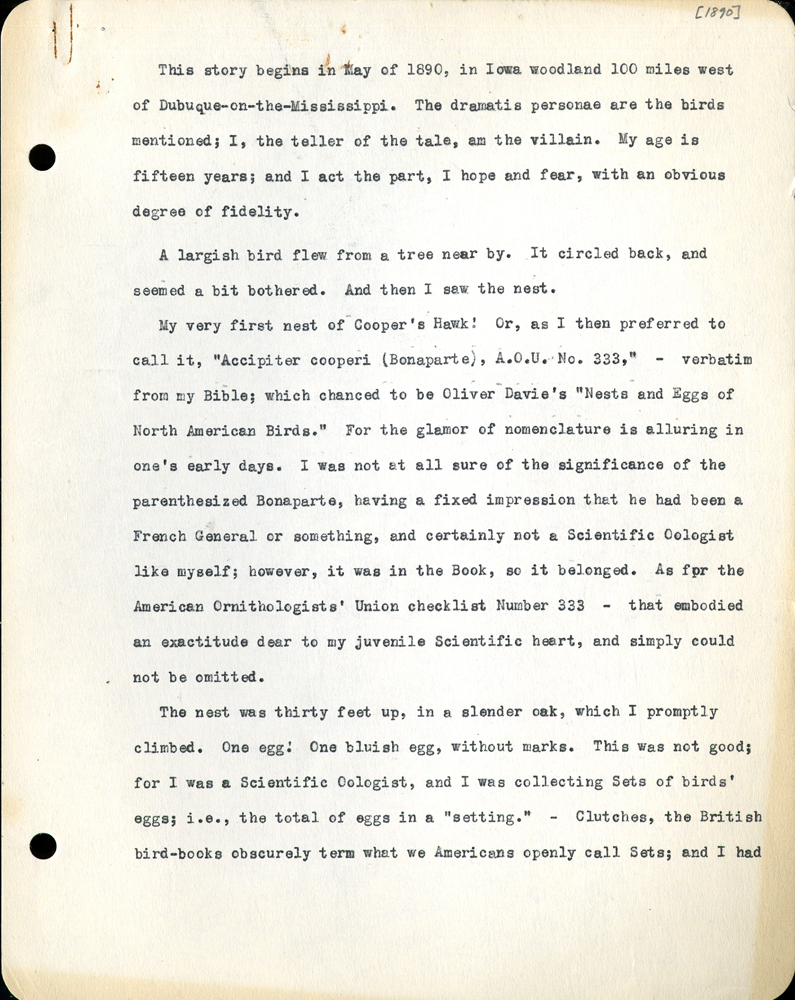
This story begins in May of 1890, in Iowa woodland 100 miles west of Debuque-on-the-Mississippi. The dramatis personae are the birds mentioned; I, the teller of the tale, am the villain. My age is fifteen years; and I act the part, I hope and fear, with an obvious degree of fidelity.
A largish bird flew from a tree near by. It circled back, and seemed a bit bothered. And then I saw the nest.
My very first nest of
The nest was thirty feet up, in a slender oak, which I promptly climbed. One egg! One bluish egg, without marks. This was not good; for I was a Scientific Oologist, and I was collecting Sets of birds’ eggs; i.e., the total of eggs in a “setting.” – Clutches, the British bird-books obscurely term that we Americans openly call Sets; and I had
2
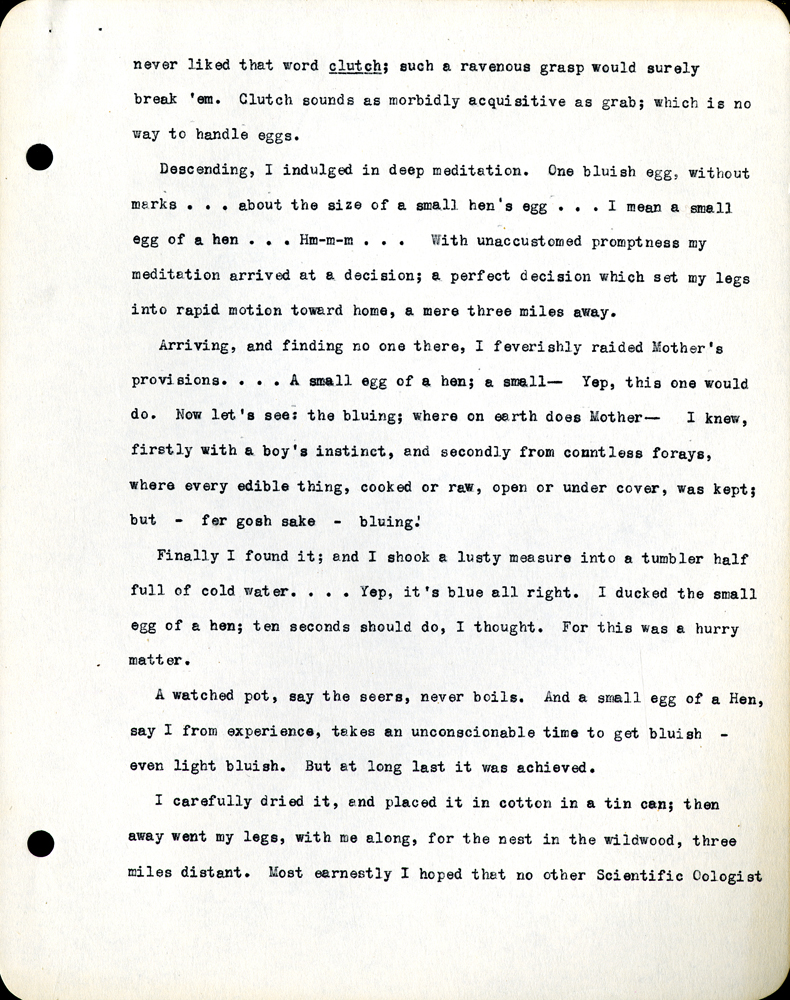
never liked that word clutch; such a ravenous grasp would surely break ’em. Clutch sounds as morbidly acquisitive as grab; which is no way to handle eggs.
Descending, I indulged in deep meditation. One bluish egg, without marks . . . about the size of a small hen’s egg . . . I mean the small egg of a hen . . . Hm-m-m . . . With unaccustomed promptness my meditation arrived at a decision; a perfect decision which set my legs into rapid motion toward home, a mere three miles away.
Arriving, and finding no one there, I feverishly raided Mother’s provisions. . . . A small egg of a hen; a small – Yep, this one would do. Now let’s see: the bluing. Where on earth does Mother — I knew, firstly with a boy’s instinct, and secondly from countless forays, where every edible thing, cooked or raw, open or under cover, was kept; but – fer gosh sake – bluing!
Finally I found it; and I shook a lusty measure into a tumbler half full of cold water. . . . Yep, it’s blue all right. I ducked the small egg of a hen; ten seconds should do, I thought. For this was a hurry matter.
A watched pot, say the seers, never boils. And a small egg of a Hen, say I from experience, takes an unconscionable time to get bluish – even light bluish. But at long last it was achieved.
I carefully dried it, and placed it in cotton in a tin can; then away went my legs, with me along, for the nest in the wildwood, three miles distant. Most earnestly I hoped that no other Scientific Oologist
3
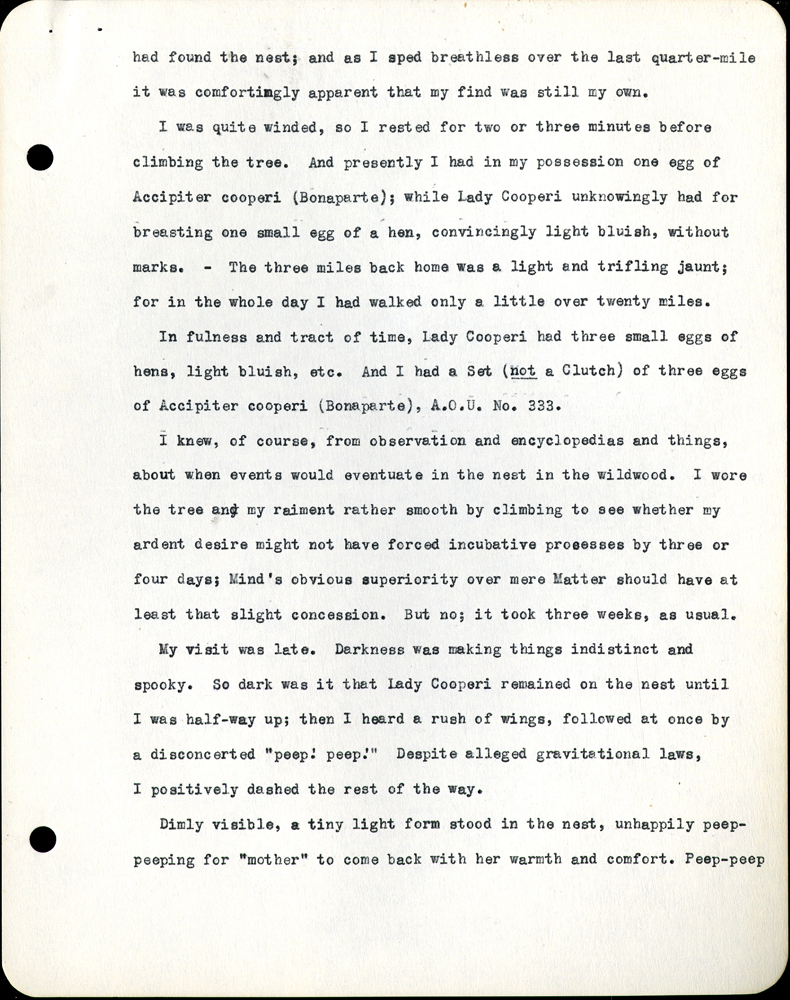
had found the nest; and as I sped breathless over the last quarter-mile it was comfortably apparent that my find was still my own.
I was quite winded, so I rested for two or three minutes before climbing the tree. And presently I had in my possession one egg of
In fullness and tract of time, Lady Cooperi had three small eggs of hens, light bluish, etc. And I had a Set (not a clutch) of three eggs of
I knew, of course, from observation and encyclopedias and things, about when events would eventuate in the nest of the wildwood. I wore the tree and my raiment rather smooth by climbing to see whether my ardent desire might not have forced incubative processes by three or four days; Mind’s obvious superiority over mere Matter should have at least that slight concession. But no; it took three weeks, as usual.
My visit was late. Darkness was making things indistinct and spooky. So dark was it that Lady Cooperi remained on the nest until I was half-way up; then I heard a rush of wings, followed at once by a disconcerted “peep! Peep!” Despite alleged gravitational laws, I positively dashed the rest of the way.
Dimly visible, a tiny light form stood in the nest, unhappily peep-peeping for “mother” to come back with her warmth and comfort. Peep-peep
4
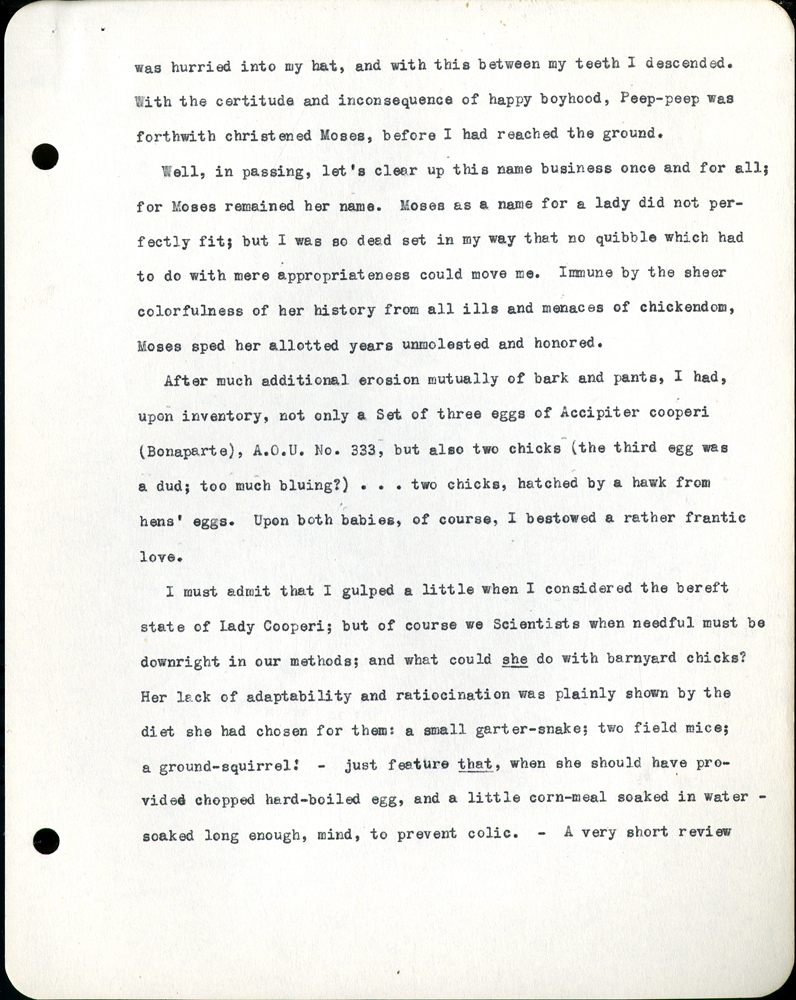
was hurried into my hat, and with this between my teeth I descended. With the certitude and inconsequence of happy boyhood, Peep-peep was forthwith christened Moses, before I had reached the ground.
Well, in passing, let’s clear up this name business once and for all; for Moses remained her name. Moses as a name for a lady did not perfectly fit; but I was so dead set in my way that no quibble which had to do with mere appropriateness could move me. Immune by the sheer colorfulness of her history from all ills and menaces of chickendom, Moses sped her allotted years unmolested and honored.
After much additional erosion mutually of bark and pants, I had, upon inventory, not only a Set of three eggs of
I must admit that I gulped a little when I considered the bereft state of Lady Cooperi; but of course we Scientists when needful must be downright in our methods; and what else could she do with barnyard chicks? Her lack of adaptability and ratiocination was plainly shown by the diet she had chosen for them: a small garter-snake; two field mice; a ground-squirrel! – just feature that, when she should have provided chopped hard-boiled egg, and a little corn-meal soaked in water – soaked long enough, mind, to prevent colic. – A very short review
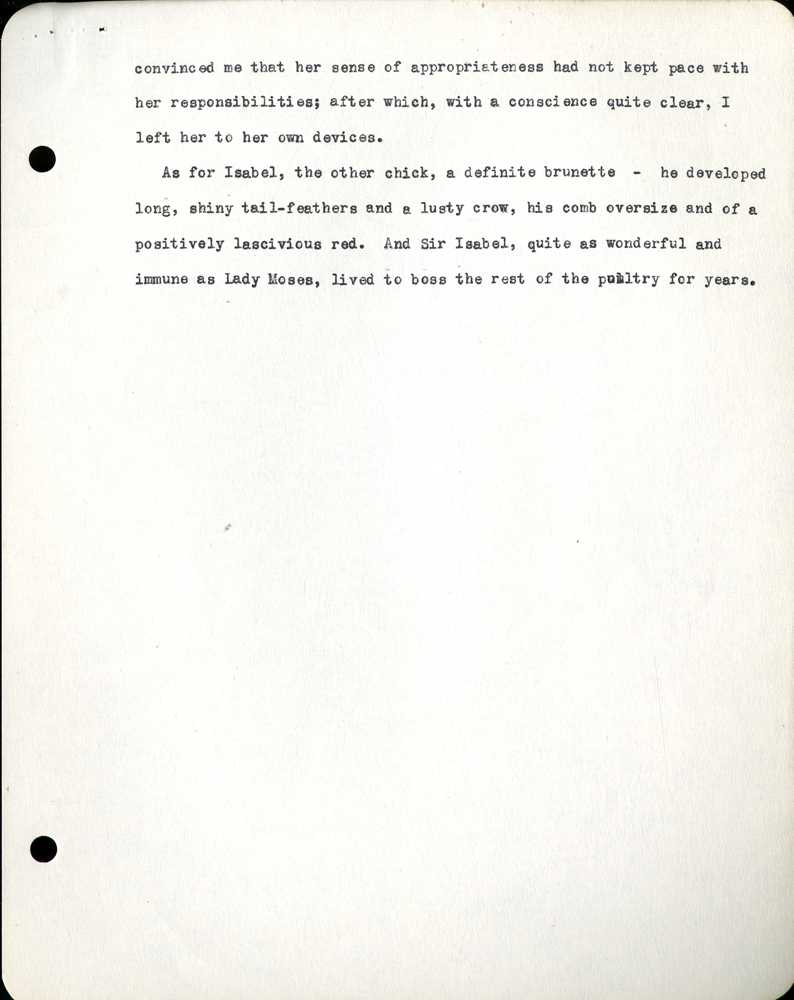
convinced me that her sense of appropriateness had not kept pace with her responsibilities; after which, with a conscience quite clear, I left her to her own devices.
As for Isabel, the other chick, a definite brunette – he developed long, shiny tail-feathers and a lusty crow, his comb oversize and of a positively lascivious red. And Sir Isabel, quite as wonderful and immune as Lady Moses, lived to boss the rest of the poultry for years.